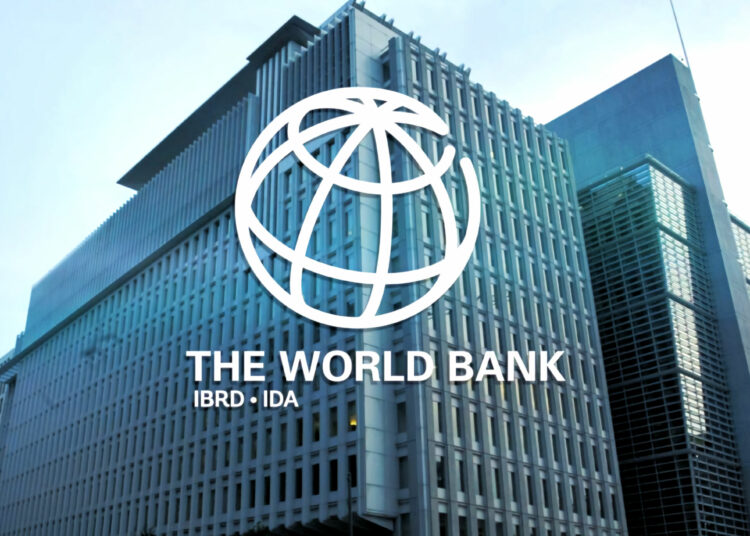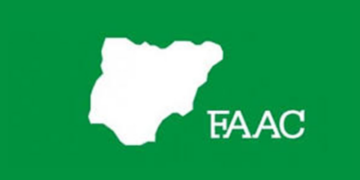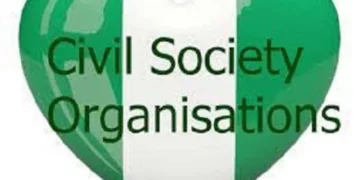The World Bank has said that Nigeria must accelerate its economic growth and focus on more productive sectors to meet the government’s target of achieving a $1 trillion economy by 2030 and reduce poverty across the country.
The bank also said the economy needs to grow at a rate five times faster than its current pace to achieve the $1 trillion target by 2030, while also addressing the country’s rising poverty levels.
This was revealed in the latest edition of the Nigeria Development Update (NDU) report, released on Monday. The report, titled “Building Momentum for Inclusive Growth,” emphasises the need for job creation and economic opportunities, especially for the poor and vulnerable.
The World Bank noted that while Nigeria’s macroeconomic outlook has improved due to sustained government reforms, much more needs to be done to translate these gains into inclusive growth.
According to the report, economic growth rose to 4.6 per cent in the fourth quarter of 2024, pushing full-year growth to 3.4 per cent—the highest since 2014 (excluding the COVID-19 rebound years of 2021-2022).
Reforms have also strengthened the foreign exchange market and improved Nigeria’s external position. The fiscal deficit narrowed significantly, falling from 5.4 per cent of GDP in 2023 to 3.0 per cent in 2024. This was largely due to a surge in government revenues from N16.8 trillion (7.2 per cent of GDP) in 2023 to an estimated N31.9 trillion (11.5 per cent of GDP) in 2024.
Despite these gains, inflation remains high. However, the World Bank projects it will average 22.1 per cent in 2025, assuming continued tight monetary policy and credible inflation control measures.
The report warns that the pace of economic growth must increase by at least five times its current rate to meet the $1 trillion GDP target by 2030. It calls for deeper structural reforms to consolidate macroeconomic stability and spur inclusive growth.
“Nigeria has made impressive strides to restore macroeconomic stability,” said Taimur Samad, acting country director for Nigeria, World Bank. “With improved fiscal space, Nigeria has a historic opportunity to increase development spending in areas like human capital, social protection, and infrastructure.”
The Bank urged the government to shift public spending from past unsustainable patterns to targeted investments that support private sector-led growth.
It also emphasized the need for better public service delivery and a business environment that enables innovation and private investment.
World Bank lead economist for Nigeria, Alex Sienaert, noted: “The public sector alone cannot drive sustainable growth and job creation. Nigeria must leverage the private sector while focusing public efforts on human capital and infrastructure.”
The report identifies key areas for policy improvement, including: closing infrastructure gaps in electricity and transportation; promoting competition and improving the business climate; expanding access to finance for businesses; and unlocking growth potential in high-performing sectors like ICT and finance, while making them more inclusive.
The World Bank concluded that with the right reforms, 2025 could become a turning point in Nigeria’s development path. It encouraged sustained efforts to build on recent gains and ensure that economic growth benefits all Nigerians.
The Nigeria Development Update is a biannual publication that tracks economic trends in Nigeria and offers policy recommendations for sustainable development.
Minister of Budget and Economic Planning, Senator Abubakar Bagudu remarked that President Bola Tinubu’s administration is determined to bring development to the grassroots by transforming local government areas into centres of economic growth.
The minister, optimistic about the incremental and positive outcome of the administration’s economic reform, stated that the President was determined to ensure this translates into a better life for most Nigerians.
He identified the increase in revenue alongside the reduction in debt as significant evidence of the economy’s improvement resulting from President Bola Tinubu’s bold reforms.
“If you take the time series backwards, you will see that revenues have historically been adjusted in response to oil prices,” the minister said, pointing out, “There was a time when oil prices were over $100 per barrel, yet some states couldn’t pay salaries. Today, however, we are seeing increased revenues to subnationals and even a reduction in their debt levels—an enhancement of fiscal space that is both notable and necessary.”
Bagudu emphasised Nigeria’s economy’s resilience, highlighting historical fiscal constraints as well as improvements in revenue distribution and debt reduction among subnational governments.
He expressed the President’s determination to ensure that the reform’s incremental dividends translate into a better life for most Nigerians.
“We are implementing a program that brings every tier of government together to map economic opportunities across all 8,809 wards in Nigeria,” he stated, explaining, “The federal government believed that cash transfers alone would not create jobs. You must identify and cultivate economic potential in each community.”
The minister emphasised the importance of the government’s grassroots-driven strategy, which aligns with its macroeconomic reforms. “This is an inclusive approach. We believe that we can unlock significant growth by focusing on ward-level economic opportunities. Mr. President will soon formally launch this ambitious initiative.”
Reflecting on Nigeria’s ongoing budgeting efforts, Bagudu emphasised the importance of discipline, accountability, and a results-driven mindset. “We are right to say that the budget must not reflect our indulgences; it must reflect our potential. This journey is nearly two years in, and now more than ever, all organs of government must work harder and smarter to deliver prosperity for our people.”
He noted that the latest World Bank report validates the effectiveness of Nigeria’s economic reform strategy, echoing sentiments expressed by the Governor of Plateau State, Caleb Muftwang.
“This report and its numbers reinforce the fact that the Renewed Hope Agenda is working,” the minister said, adding, “The governor of Plateau State rightly emphasised staying the course—not choosing winners, but supporting those who believe in Nigeria’s future. Our economy has one of the highest capacities globally to absorb technology, and our digital economy is a testament to that.”
The minister also addressed recent poverty reports, acknowledging their validity while clarifying the limitations of the underlying data.
He explained, “Yes, the figures are real, but they reflect older datasets, not the current momentum of reforms underway since June 2023. We are not playing the blame game. Mr. President campaigned for this responsibility. We are not where we want to be, but committed to doing more.”
The event brought together top federal officials, including the minister of Finance and Coordinating minister of the Economy, Wale Edun, and Central Bank governor, Yemi Cardoso; along with state representatives, development partners, and economic stakeholders to reflect on Nigeria’s progress and challenges amid ongoing reforms under the Renewed Hope Agenda.





